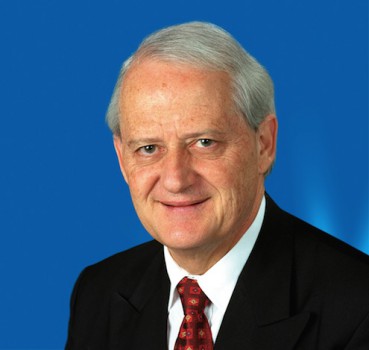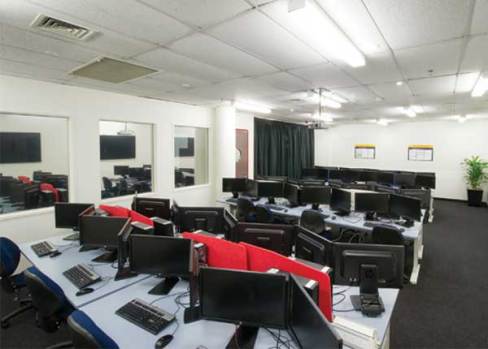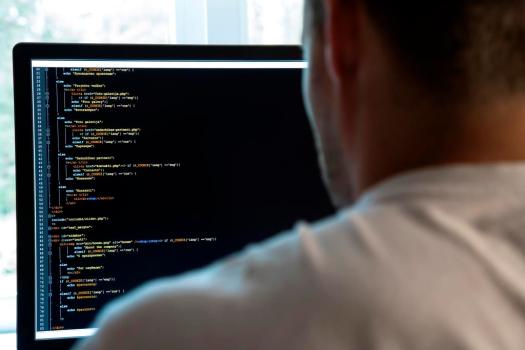
By Julian Bajkowski
Former Attorney General and Opposition Cabinet Secretary Philip Ruddock has accused the Labor Government of piling extra work onto intelligence and security agencies but not sufficiently resourcing them – while at the same time pursuing cosmetic exercises in rebranding.
Speaking at the Digital Security Summit 2013 in Canberra on Thursday, Mr Ruddock questioned whether an increase in the security assessment workload of the Australian Security Intelligence Organisation was draining financial resources to deal with other issues like cyber espionage.
Mr Ruddock stressed that his opinions were of a personal nature and not official Coalition policy. The caveat did little to deter the attention of several security agency executives trained to listen.
“ASIO is now dealing with something in the order of 34,000 security assessments in relation to individuals who arrived in Australia without lawful authority,” Mr Ruddock said.
“ASIO is having to undertake an increasing number of counter terrorism security assessments… they’ve increased by something in the order of 11 per cent without additional resources of substance.
“Yet there is an expectation in relation to the area of cyber-security in relation to dealing with some of the other risks that we face that the organisation is still going to be as competent and well-resourced in to be able to deal with those issue,” Mr Ruddock said.
“Defence expenditure is now at a 75 year low. I recently spoke in the Parliament on the tabling of the expenditure report [of] our security agency and the shifting priorities and demands. This was a matter of key concern to me. I suspect that some of the responses in this area are politically driven rather than a rational assessment of what those needs might be,” he said.
Mr Ruddock told delegates that ASIO was now having to undertake an increasing number of counter terrorism security assessments that had increased in the “order of 11 per cent without additional resources of substance.”
“Yet there is an expectation in relation to the area of cyber security in relation to dealing with some of the other risks that we face that the organisation is still going to be as competent and well-resourced in to be able to deal with those issues,” Mr Ruddock said.
“In other words we are giving our agencies more to do but not the capacity to do it. I think we would be right to be worried if an Australian Cyber Security Centre delivers in outcomes rather than continues to do what it’s done before – I hope it can.”
Mr Ruddock said Cyber Security Operations Centre reporting had revealed that that there were 1289 cyber attacks in 2011 that increased to 1790 attacks in 2012.
“Already 789 had occurred up until May 2013,” he said, adding that “80 per cent of those attacks investigated were seen to be state sponsored.
“So the resourcing issues, to my way of thinking, don’t match the risk.”
But reliable intelligence in Coalition funding plans is proving a challenge to obtain and there does not yet appear to be any new money for spies on the table from the Coalition. Asked what percentage of funding increase might redress the resource deficiency for cyber security, Mr Ruddock said funding was a matter of priorities in a Budget context.
“Let me be realistic, there is money going to be stripped out of the Budget, probably even in the next week because of some of the other expenditure priorities – that will happen and I don’t think they will be found very easily,” Mr Ruddock said.
The former chief law officer noted that the money had to come from somewhere.
“These issues are only going to be fundamentally addressed when you get real substantial growth back in the Australian economy.
“One thing we don’t hear about …. is how you generate the growth in corporate activity generally that will lead to large tax collections.”
One active and growing corporation that has the attention of agencies and politicians alike is Huawei which has reached out to former Australian politicians to assist with policy issues.
The Chinese telecommunications equipment manufacturer has been excluded from supplying kit to build the National Broadband Network because of national security concerns. Although Mr Ruddock did not take issue with security advice on Huawei, he questioned the broader context of the decision.
“I think Huawei makes a good point when they say ‘we are not the only Chinese supplier’ and that many of the other suppliers are in fact sourcing material in China,” Mr Ruddock said.
He also pointed to the Chinese company’s willingness to fund supervision.
“I know the Brits went down the route of accepting money from Huawei to establish an agency that was going to supervise the operations that they were undertaking in the United Kingdom, and I think they’d do the same for us,” Mr Ruddock said
But he observed that “Some people are questioning whether it is robust enough.”
“To my way of thinking, if I we’re talking to the agencies – and I haven’t talked to the agencies [about this] in detail – I’d be asking questions about the very point that Huawei did make.
“To what extent are other agencies sourcing their material from China leaving also us exposed? And is it we treat one significantly differently to others?” Mr Ruddock said.
“I think what also has to be put in question is establishing is to whether or not there are other ways of establishing that the way in which the task is being undertaken is not going to be such that it leaves youy exposed.
“I can’t answer those questions myself, but I will certainly be asking them of the experts.”
Huawei’s offer to subsidise potential supervisors sits in sharp contrast with the financial contribution of established multinational technology companies that are under fire in Australia, Britain and Europe for profit shifting to minimise tax obligations.
Opposition Communications spokesman Malcolm Turnbull has already flagged that he is not comfortable with negligible tax receipts from companies earing profits in the billions in Australia and the cause of revenue is clearly not lost on Mr Ruddock either.
Asked if he believed there was scope for reform on profit shifting arrangements, Mr Ruddock said “there is scope for reform if people wish to pursue it. My view is that to the greatest extent that you can, it ought to be a level playing field.”
“I have always been concerned that if profits are generated here, relevant taxes should be paid here. I know it gets more complex, and I know there is a great deal of discussion about these issues particularly involving our tax officials, the United States, Europe, Britain.
“I am not about arguing that some people should be paying more taxes than others, I just put the proposition: the principle position is that if you make a profit here, and others are taxed for profits, other interests simply because they are overseas owned or operate overseas shouldn’t to be able to obtain a different form of treatment.”
Comment below to have your say on this story.
If you have a news story or tip-off, get in touch at editorial@governmentnews.com.au.
Sign up to the Government News newsletter




